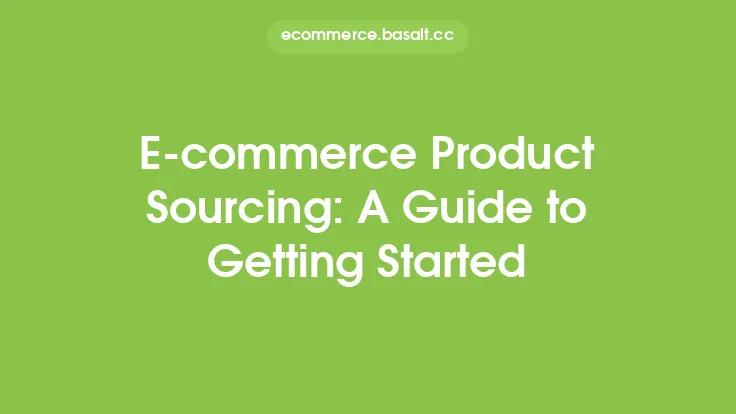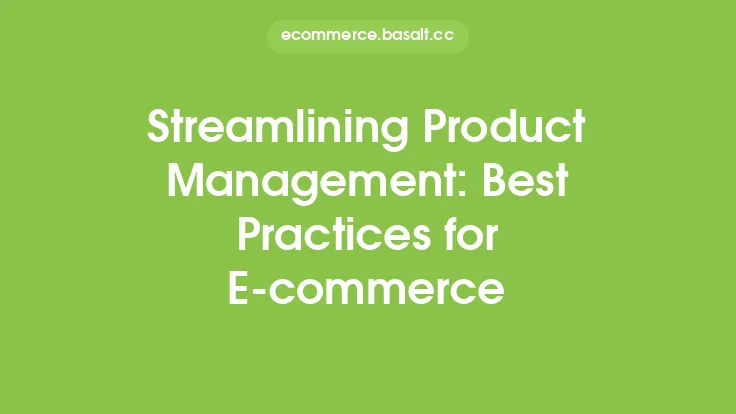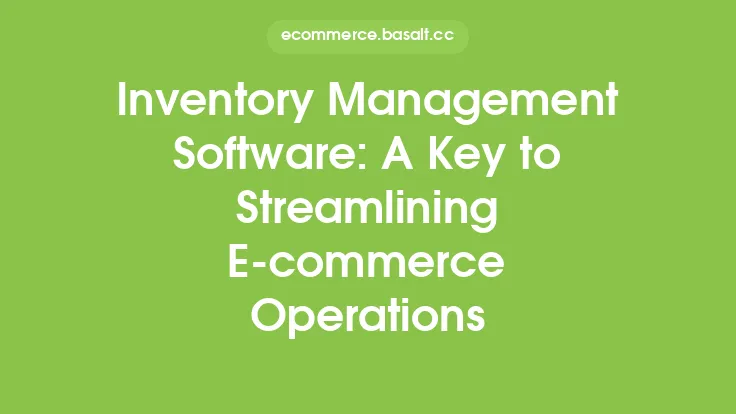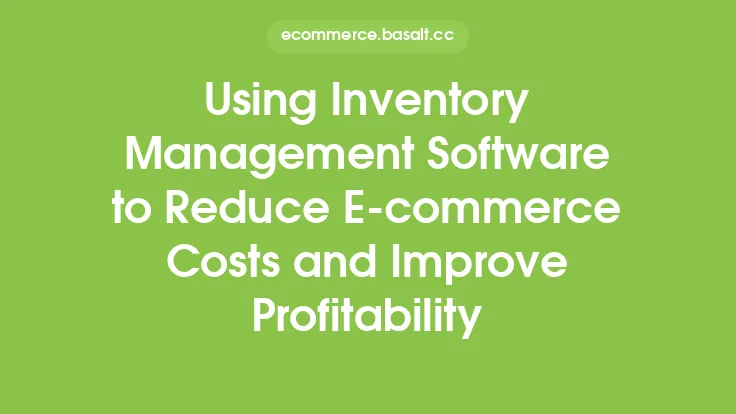In the world of e-commerce, having the right products at the right time is crucial for success. This is where product sourcing and management come into play. Product sourcing refers to the process of finding and acquiring products to sell on an e-commerce platform, while product management involves overseeing the entire product lifecycle, from development to delivery. Effective product sourcing and management are essential for e-commerce businesses to remain competitive, as they enable companies to offer high-quality products at competitive prices, manage inventory levels, and ensure timely delivery to customers.
Understanding Product Sourcing
Product sourcing is a critical component of e-commerce, as it involves finding reliable suppliers who can provide high-quality products at competitive prices. There are several types of product sourcing, including domestic sourcing, international sourcing, and dropshipping. Domestic sourcing involves finding suppliers within the same country, while international sourcing involves finding suppliers from other countries. Dropshipping, on the other hand, involves partnering with a supplier who ships products directly to customers on behalf of the e-commerce business. Each type of sourcing has its advantages and disadvantages, and e-commerce businesses must carefully evaluate their options to determine the best approach for their needs.
Product Management Fundamentals
Product management is a broad field that encompasses a wide range of activities, from product development to delivery. In the context of e-commerce, product management involves overseeing the entire product lifecycle, from sourcing to delivery. This includes managing inventory levels, tracking product performance, and ensuring that products are delivered to customers on time. Effective product management requires a deep understanding of customer needs, market trends, and supplier capabilities. E-commerce businesses must also have robust systems in place to manage product data, track inventory levels, and analyze sales performance.
The Importance of Supply Chain Management
Supply chain management is a critical aspect of product sourcing and management. It involves managing the flow of goods, services, and information from raw materials to end customers. Effective supply chain management enables e-commerce businesses to reduce costs, improve efficiency, and enhance customer satisfaction. This includes managing relationships with suppliers, negotiating prices and delivery terms, and ensuring that products are delivered to customers on time. E-commerce businesses must also have contingency plans in place to manage supply chain disruptions, such as natural disasters or supplier insolvency.
Technology and Product Sourcing
Technology plays a vital role in product sourcing and management, enabling e-commerce businesses to streamline their operations, reduce costs, and improve efficiency. There are several types of technology that can be used, including product information management (PIM) systems, inventory management systems, and supply chain management software. PIM systems enable e-commerce businesses to manage product data, including descriptions, prices, and images. Inventory management systems enable businesses to track inventory levels, manage stockroom operations, and optimize inventory levels. Supply chain management software enables businesses to manage relationships with suppliers, track shipments, and analyze supply chain performance.
Best Practices for Product Sourcing and Management
To remain competitive, e-commerce businesses must adopt best practices for product sourcing and management. This includes developing a robust product sourcing strategy, managing supplier relationships, and optimizing inventory levels. E-commerce businesses must also have systems in place to track product performance, analyze sales data, and identify areas for improvement. Additionally, businesses must ensure that they are complying with all relevant laws and regulations, including product safety standards and intellectual property laws. By adopting these best practices, e-commerce businesses can improve their competitiveness, enhance customer satisfaction, and drive long-term growth.
Conclusion
In conclusion, product sourcing and management are critical components of e-commerce success. By understanding the fundamentals of product sourcing, product management, and supply chain management, e-commerce businesses can develop effective strategies to remain competitive. Technology plays a vital role in product sourcing and management, enabling businesses to streamline their operations, reduce costs, and improve efficiency. By adopting best practices and staying up-to-date with the latest trends and technologies, e-commerce businesses can improve their competitiveness, enhance customer satisfaction, and drive long-term growth. Whether you are a seasoned e-commerce professional or just starting out, understanding the importance of product sourcing and management is essential for success in the ever-evolving world of e-commerce.





